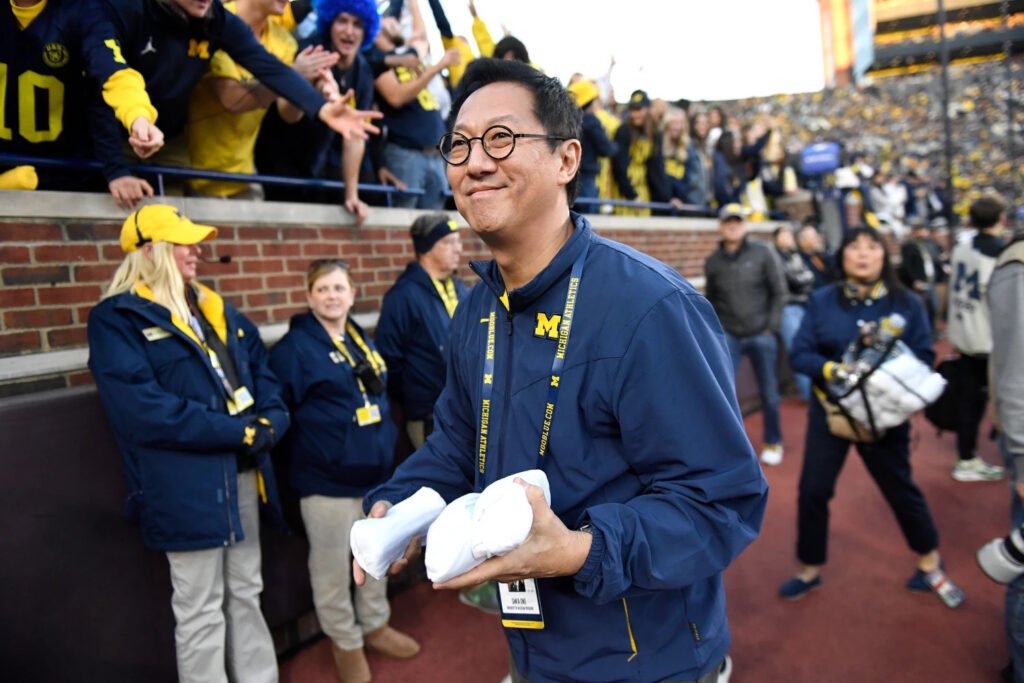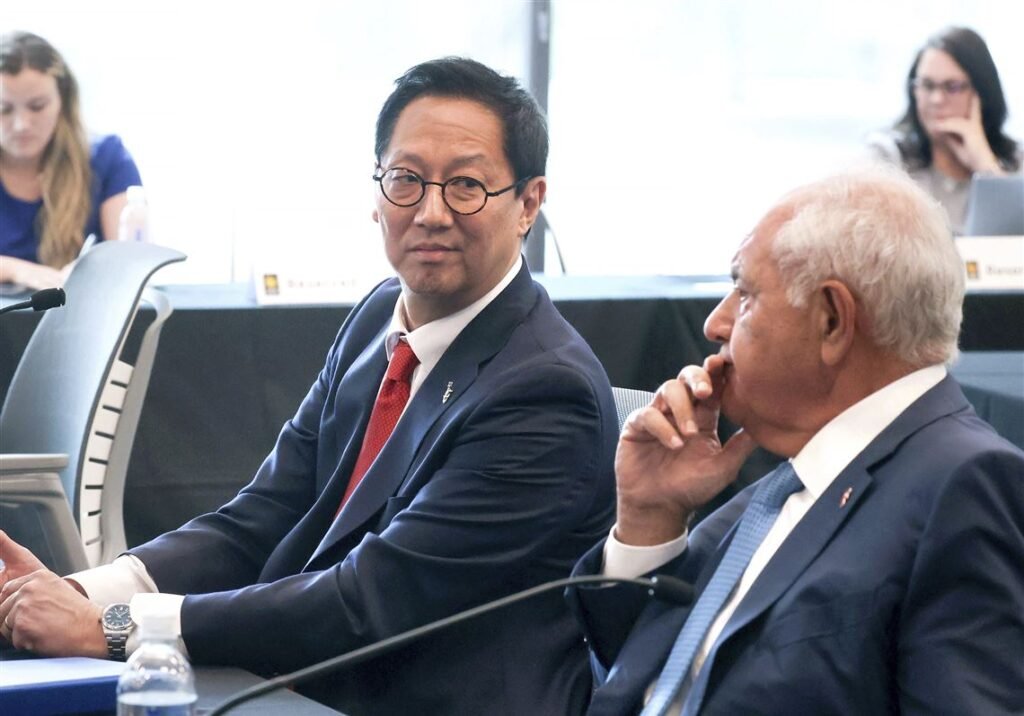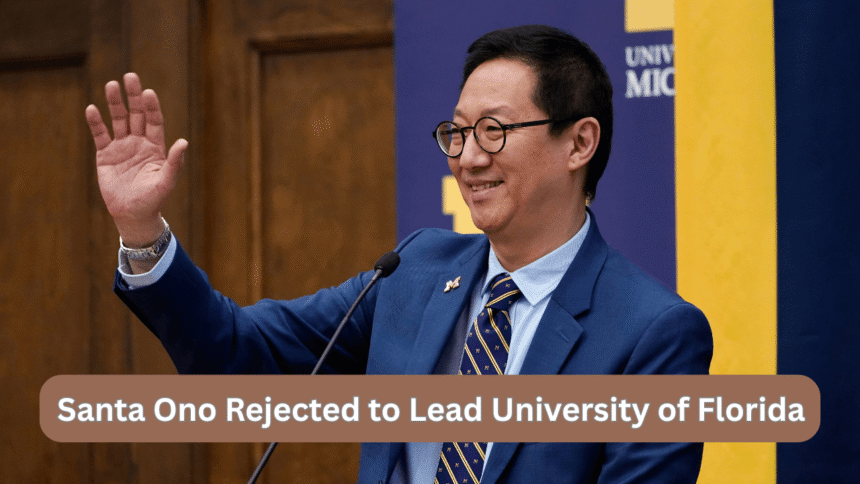In a surprising and widely discussed decision, former University of Michigan President Santa Ono was rejected as the next president of the University of Florida. The governing board responsible for approving presidential appointments cited concerns that have sparked debates on the role of politics and ideology in academic leadership. This unexpected outcome underscores the complex environment surrounding university leadership today and raises questions about the future direction of the University of Florida.
Santa Ono’s Academic Leadership and Vision
Santa Ono is recognized for his dynamic and inclusive approach to university leadership. His tenure at the University of Michigan was notable for implementing initiatives aimed at improving campus climate, expanding diversity and inclusion efforts, and strengthening the university’s research profile. His leadership style combined academic rigor with a commitment to community engagement, making him a respected figure among faculty and students alike.
Ono’s academic credentials and leadership experience made him a compelling candidate for the University of Florida’s presidency. He was seen as someone capable of guiding the institution through challenges related to enrollment growth, funding, and evolving societal expectations. Many within the University of Florida community were hopeful that Ono would bring fresh perspectives and a unifying vision.
Controversies Leading to the Rejection

Despite his strengths, Santa Ono’s history of supporting diversity, equity, and inclusion (DEI) initiatives became a focal point for criticism. Opponents viewed his advocacy as controversial and feared that his leadership might push the University of Florida toward policies they disagreed with. This ideological divide played a significant role in the governing board’s decision to reject his appointment.
The rejection reflects broader national trends where political considerations increasingly influence decisions about university leadership. In some states, boards and legislators have scrutinized candidates’ past statements and actions related to social issues, sometimes overshadowing traditional criteria like academic achievements and administrative competence.
Response from the University Community
The decision to reject Santa Ono has provoked strong reactions on campus and beyond. Many faculty members and students who supported his candidacy expressed disappointment, highlighting his qualifications and the positive changes he had implemented in previous roles. Some faculty members voiced concerns that political interference might undermine the university’s ability to attract high-quality leadership in the future.
University administrators acknowledged the challenge of balancing various stakeholder interests while striving to uphold the institution’s mission. The rejection has also sparked conversations about the importance of protecting academic independence and fostering an environment where leaders can champion inclusive policies without fear of political retribution.
Political Influence and Higher Education Governance

The case of Santa Ono exemplifies the growing influence of politics on higher education governance. Boards of trustees and state officials are increasingly involved in decisions traditionally made by university communities, such as selecting presidents and shaping strategic priorities. This shift can create tension between academic values and political agendas.
Experts warn that when political ideology overshadows merit-based selection, universities risk losing talented leaders and compromising their academic integrity. It also raises concerns about the future landscape of higher education, where ideological battles might take precedence over educational quality and innovation.
For those interested in corporate legal matters in the medical field, you may want to read more about the ongoing Innovasis Lawsuit.
Challenges Ahead for the University of Florida
The University of Florida now faces the urgent task of identifying a new president who can navigate these politically charged waters. The leadership vacuum comes at a critical time as the university seeks to maintain its standing as a top public institution and address challenges like funding constraints, student retention, and evolving educational demands.
Finding a candidate who can satisfy diverse expectations—balancing academic excellence, political realities, and community needs—will not be a simple task. The search process is expected to be rigorous and closely monitored by various stakeholders invested in the university’s future.
The Future for Santa Ono
For Santa Ono, the rejection by the University of Florida governing board is a setback, but not the end of his distinguished career. Known for resilience and dedication to education, Ono is likely to continue contributing to the academic world, whether through leadership at other institutions, scholarly work, or advisory roles.
His experience highlights the increasingly complex challenges academic leaders face today, navigating not only educational goals but also political and cultural currents that affect higher education across the country.
The decision to reject former University of Michigan President Santa Ono to lead the University of Florida highlights the growing intersection of politics and academia in leadership appointments. As universities grapple with ideological pressures, the balance between academic freedom, inclusion, and political influence becomes ever more delicate. The University of Florida’s experience serves as a case study in the challenges facing higher education institutions nationwide, emphasizing the need for transparent, merit-based selection processes that prioritize the university’s long-term success and mission.
To better understand the evolving learning landscape, readers can also explore our detailed comparison on The Differences Between Online And Traditional Education.

